|
Our executive director and founder, Dr. Alexis Decosimo, and Playing to Live curriculum builder, Kristin Ramsey, launched this podcast to support front line workers during the COVID-19 crisis. Their goal is to give front line workers a platform to tell their story, while offering coping strategies for self care and mental health based on their expressive art therapy, yoga therapy, and global mental health expertise. The first guest to the podcast is Morgan Sykes. Originally from Asheville, Morgan moved to NYC to pursue a career in journalism. After being laid off, Morgan struggled with clinical anxiety, depression, and insomnia. She temporarily gave up journalism, and began working at a bike shop and as a bike messenger. She quickly fell in love with it, and explained the exhilaration that came with being a woman and “taking up space, and not letting yourself get pushed around by cars”. However, after the deadliest year in ten years for cycling accidents in NYC, and experiencing several cycling deaths in her community, Morgan decided to take some time off from biking in the city. At the beginning of 2020, Morgan planned to make her journalism comeback, but then the pandemic hit. In a desire to serve her community, Morgan posted a tweet that went viral, offering to help with grocery shopping and delivery on her bike. She quickly became overwhelmed with delivery requests and a “bizarre” amount of media attention. Then, she found Corona Couriers*, a team of volunteers offering free low-contact deliveries using a “neighbors helping neighbors” model. She joined them and hit the ground running. Specializing in long-haul trips, she can carry up to 40lbs at a time. Morgan said, "I'm not going to apologize or pretend that I'm not strong as hell. I've earned this." But as the death toll keeps rising, and ambulance sirens ring loud over the city, Morgan explains, “It’s hard to take care of myself. I disregard my own needs. I hit a wall a few days ago and I had to slow down.” Morgan started working with Corona Couriers partially as a coping mechanism. So, when forced to self-quarantine at her home, it feels a lot like her old depression coming back up. She can’t use her usual coping strategies, like going to the museum or meeting a friend for coffee. Like many others, she’s trying to figure out what self care looks like in this new way of life.
1 Comment
Playing to Live (PTL) in collaboration with the Danish Refugee Council (DRC) and TPO- Uganda sought to create a comprehensive report to highlight the immense need for mental health and psychosocial support (MHPSS) for children and adolescents in Uganda’s refugee settlements hosting South Sudanese refugees. Through the financial support of a grant from the Humanitarian Innovation Fund (HIF)/ELHRA and PTL donors, the following activities were successfully completed: background review, literature review, and needs and resource assessment. The activities were performed from March 1, 2017- October 31, 2017. During this time, PTL sought continual conversations and support from Uganda’s Office of Prime Minister (OPM) and UNHCR. Key stakeholders across for-profit, non-profit, and governmental organizations acted as advisors throughout this process. In addition, all collaborating organizations mentioned in this report provided essential information about their MHPSS services and recommendations for future growth. Transcultural Psychosocial Organization (TPO) Uganda provided additional support through validating the final information in the needs and resource assessment. The background review is a comprehensive review based on published literature of South Sudan’s culture and history. It provides insight into the role of religion, gender, and health. Insight into the cultural understanding and roles of mental health is also explored. Based on this information and additional literature, a review of the need and impact of mental health is stated. The literature review in this report highlights best practices, barriers, and outcomes for MHPSS child and adolescent programming in refugee/internally displaced persons (IDP) settings using paraprofessionals. The literature review was performed by three independent reviewers, began with 4,584 articles, and after three stages of inclusion criteria, 28 articles were included for the review. The 28 articles were reviewed, compared and contrasted, and rated for quality. This complete literature review can be used as a foundation to advocate for effective and sustainable programs. The needs and resource assessment used the Inter-Agency Standing Committee (IASC) rapid MHPSS needs assessment guidelines to perform an assessment on four of Uganda’s largest refugee settlements. This report contains the qualitative interviews, the methods followed, and the results from this assessment. Conclusions and recommendations pull together the background, literature review, and needs and resource assessment to highlight the urgent need for MHPSS programs for children and adolescents. Recommendations highlight the need for services on all levels of MHPSS response and describe how PTL could be an effective model to build capacity and support.
What a week!
Our clinical manager Cat is on a plane to return to Uganda. She will be there for a month implementing our needs assessment, which is funded by an HIF/ELHRA grant. This assessment will begin to answer the question of what are the mental health programming needs of the South Sudanese children/adolescents in Uganda, (Read more about our grant) Jessi, our cofounder, arrived in Liberia this week for a personal trip but was greeted by our Playing to Live! (PTL) staff and our past partner Renewed Energy Serving Humanity (RESH). The reunion was incredibly joyous, and we were reminded, yet again, of our gratitude to this group of passionate individuals. The concept of PTL was created as a response to the trauma Liberians were experiencing due to the Ebola epidemic, and while the American PTL was passionate about our idea, it would not have happened without the support of the Liberian people. They accepted our idea, assisted in the cultural adaptation, and opened doors for implementation. By the time it reached their community, Playing to Live was "family" and regarded as a Liberian initiative, which meets our goal in building community based and empowered programs. We have been accepted into two exciting global health conferences happening this month, CUGH and Unite for Site. We will present a poster showing our results from our programming in Liberia during the Ebola crisis.
Alexis next to our poster at CUGH
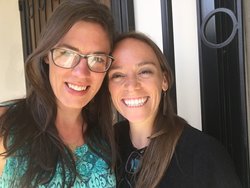 We are excited to announce that Playing to Live has received support for our needs and resource assessment in Uganda's refugee settlements through a grant funded and supported by Elrha, HIF, UK Government, Swedish International Development Agency (SIDA), and Ministry of Foreign Affairs (MFA). We are incredibly honored to be selected as a recipient of this grant and look forward to working together to successfully complete this work! Currently, Uganda hosts over 719,154 South Sudanese refugees. Everyday, 1,000 to 3,000 new refugees seek asylum from war and violence; the UN estimates that an additional 300,000 South Sudanese will arrive in Uganda in 2017. Over 70% of these refugees are children; most are unaccompanied minors. In light of the influx of refugees, organizations are working to provide increased resources for access to basic needs such as water, food, shelter and medical care. Mental health services to meet the vast needs of refugees are minimal at best. As of March 2017, Playing to Live team members completed our first trip to Uganda to begin the grant process. During this time, we made initial contact with key organizations currently providing psychosocial and/or mental health services to meet the vast needs of refugees and internally displaced persons in Uganda. We were received with excitement and positivity from all the organizations we met with, and thanks to this grant, we will be spending four out of the next six months in Uganda gathering key information from leading organizations, health workers implementing programming in the field, and refugees themselves. This information will be compiled and presented; the potential impact of this project is extensive. One goal is to champion the work of leading organizations currently providing psychosocial and/or mental health care in this setting and highlight barriers to care provision. A second goal is gain a deeper understanding of psychosocial needs of adolescent girls, and to identify best practices for the utilization of expressive arts therapy techniques in this setting. The impact of future programming, built from this research, is expected to include the following benefits for participants: decrease in psychological stress symptoms; increase in self-efficacy, self-esteem, and healthy coping skills; and an increase in economic independence. Future programming could inform best practices and establish a model of care for aid organizations worldwide as they seek to help the growing refugee population. We encourage you to visit our program profile and follow HIF and Elhra to learn more about our work at Playing to Live and the vital work of the additional organizations they support. We are excited to announce that PTL’s executive director, Alexis, and clinical manager, Cat, will be heading back to Uganda for two weeks to continue to build Playing to Live!’s concept for a South Sudanese Refugee mental health response.
Since Alexis's trip to Uganda and the refugee settlements in August 2016, nearly 300,000 refugees have come over the border to Uganda from South Sudan. This influx has pushed aid resources to their limits, while mental health care has become a targeted need. Our trip in August initiated partnership conversations with major in country players and organization. Since August, Playing to Live! has focused the majority of our resources to build a programmatic foundation through research of best practices in expressive therapies, lessons from our past programming, and monitoring and evaluation methodology. Though we have used this time for our overall organizational foundation, we have also been actively building our concept for the South Sudanese in Uganda. The research we gather is continuing to support PTL’s mission. War, trauma, and displacement has severe short term and longterm effects on children, families, and communities. We aim to build a sustainable supportive mental health program based on best practices of the expressive therapies. By training and employing local community members through in country partners, we are focusing on building skills that will stay even after the program ends. At PTL we focus on working with community leaders and established organizations to guide the program, development. Due to this we spend a significant amount of time researching, running focus groups, and working alongside the community before implementing our program. Our trip to Uganda will be another crucial step in building our program, and we look forward to sharing with you our progress. During our few days at the refugee camps, we were able to meet with a diversity of people including: organizations working in the camps, children, adolescents, women, and men. We had the opportunity to meet with people who had arrived that day, a community who had been in the settlement less than two weeks, and a community who had been in the camps for more than a year. 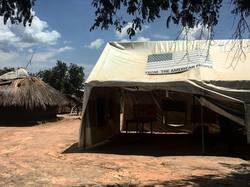 In our focus groups, we heard about the basic needs that people were in need of, but we also heard a large emphasis on the need for psychosocial support for the individual and community's grief and trauma. This was surprising to me because in many communities that I have worked in where counseling and mental health is a taboo subject and speaking about it takes a lot of care and sensitivity. The South Sudanese and Congolese spoke of their psychological trauma and support needs openly, and I was thrilled to hear their suggestions because many of the suggestions fit right into Playing to Live's structure, which included: community capacity building, trauma informed skills training, the use of cultural art and play, and building skills within the family. 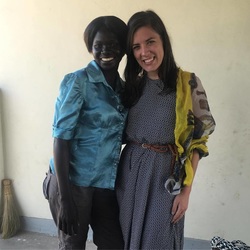 Sitting idol was indicated as one of the major social issues within the villages. The villages sit far away from each other and are very isolated. Economic opportunities and access to secondary schools are extremely limited, which leaves time for youth to engage in risky behavior, young girls are susceptible to early marriage, and there is ample time to think about trauma and loss. The youth spoke to us about their want for the opportunity to use art supplies, put on drama plays, and practice their cultural arts. They spoke about their wishes to use these mediums as a way to advocate to their community their child rights and tell their story. I filled a whole notebook of notes during our visit, and I will continue to upload blog posts as I leaf through my field notes and work with my team on next steps. (Image above: Our translator knew over 5 languages and spent a significant time with us during our focus groups. We spoke after the groups, and she emphasized the need for psychosocial support specifically one that is culturally appropriate.) ~Alexis 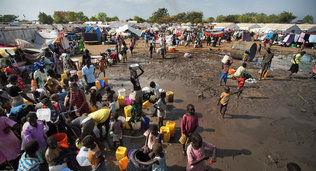 Oeindrila and I spent our first few days in Uganda meeting with a diversity of international and local organizations, who are working in the refugee camps. We learned about the structure of the refugee camps within Uganda, which is very unique and is contrast to what we are experiencing in the Western world. When the refugees are received within the camp, they are processed and given a plot of land within the "settlement," a year of food assistance, materials to build a home, and other essential needs. Once given refugee status, the refugee is free to move within Uganda and apply for work, receive education, and live where they choose. Since July there has been an influx of South Sudanese refugees due to an increase of fighting. According the the UNHCR, over 37,000 people have sought asylum since the beginning of the year. The organizations we spoke to highlighted the need for psychosocial support due, to the refugees experiencing high amounts of trauma including abuse, grief, witnessing death of family members, rape, and having their lives and integrity threatened. Within the camps, our contacts told us, there is a gap of psychosocial care. The organizations told us about the work they have done to provide psychosocial care, which is admirable and impressive, but with all the other needs that need to be filled there is still a large gap. This gap is where we hope to come in.
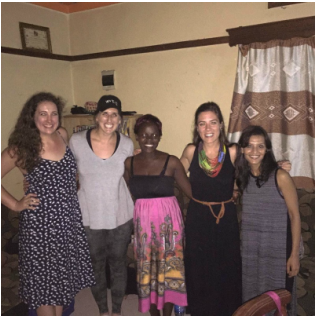 The past two days have been a whirlwind here in Uganda. Oeindrila and I spent most of yesterday finalizing our pitch and concept plan to provide to potential partners and collaborators. Together, we have spent the past 5 months formulating ideas on programming and how we can collaborate to expand the work of Playing to Live! in order to serve more children and communities in need. We have looked all across the world, quite literally, for possible implementation sites and Uganda’s South Sudanese refugee camps had the open doors we needed to schedule a trip. Together we are working to identify the ideal partnership and program site for Playing to Live! and to set the stage for strong research study. Once this has been completed, Oeindrila will be performing an independent evaluation on programming implemented by Playing to Live and our partner organization. Last night, we took a break from our computers and were welcomed into the home of a Ugandan woman who is leading the charge in serving the education and health needs of the children of Uganda. We were invited to join by two new art therapists from George Washington University who are currently visiting and volunteering their time in the region. This incredible woman has dedicated her life and her passion to provide health education and empowerment to Ugandan children. We listened all night to her stories and ideas she has to better her community. I left incredibly inspired and energized. I look forward to building communication between her and the efforts of the Playing to Live! team moving forward! Today, we had two very important meetings. The first meeting was with a large international NGO that oversees many of the refugee camps in Uganda. We learned that there is a large gap in psychosocial support programs within the camps, and I was honored to witness the interest and excitement they had towards exploring opportunities for future collaboration. Our second meeting was with a Ugandan non-profit organization, which acts as a leading force in psychosocial support services in Uganda and in the refugee camps. Not only did we learn a lot about the community’s culture, needs, and current resources, but we also spoke about ways in which many of our goals align. In each of the meetings – I found that two core themes arose: (1) the need for culturally relevant and sustainable programs and (2) the need for scientific research to build evidence of best practices. Despite the challenges we may face globally and the vast gaps in current services for children in need – I found comfort in the knowledge that the core themes identified during our discussions here in Uganda mirror the aims of Playing to Live. I take comfort in the fact that Playing to Live! is working to contribute to combat the barriers to these needs. The last few days have reminded me of a quote from Helen Keller - “Alone we can do so little; together we can do so much!” We have more meetings tomorrow then off to North Uganda to visit the work sites of the organizations we have spoken with over the last two days. We are looking forward to running focus groups with members of the community and having a investigating possibilities of future work. Away we go! 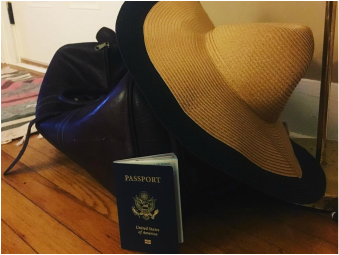 Well – after packing my bag and passport and hitting the road for Atlanta – I finally made it to Uganda! I arrived at 4am after 30 hours of travel and by 10 am it was time to hit the ground running. We have an exciting week ahead of us filled with meetings with different organizations in Kampala, the capitol, and in North Uganda in a South Sudanese refugee camp. My colleague Oeindrila Dube, a professor at the University of Chicago - Harris School of Public Policy, met me in Kampala to begin our journey together. I reached out to Oeindrila earlier this year after becoming interested in her work in reconciliation and forgiveness in Sierra Leone. I listened to her interview on the podcast This Hidden Brain and became extremely interested in her research focus and how it relates to our work at Playing to Live! I could write pages on my interest in theories of the findings in her research on forgiveness in relation to expressive art therapy, but I will save it for another time. I highly recommend listening to her explain her findings in this NPR podcast (link: http://www.npr.org/2016/01/26/463861864/fambul-tok-forgiveness-and-family-talk-in-sierra-leone). After connecting, Oeindrila and I continued conversations about how Playing to Live programming has developed and how our statistics in Liberia have shown a significant decrease in psychosocial stress symptoms from children enrolled in our 6 month post Ebola program intervention. We began to explore opportunities in combining her strength in research design and the programming developed by Playing to Live. Those conversations are what led to both of us arriving in Kampala, Uganda early this morning. After months of conversations, we finally met in person for the first time in Kampala and immediately started to explore all the avenues Playing to Live could take to support children and communities living in refugee camps in Uganda. The core of our programming focuses on individual healing, community empowerment and collaboration, psycho-social skill building, relationship skill building, creating safe spaces, and training community based individuals on ways to use their cultural arts as a healing technique. Each of these core components of our work, we can dream of all the ways that these can take shape as we discuss the next chapter of Playing to Live. The greatest challenge may be determining what aspect is the most important to evaluate as we move forward! How can we make the greatest impact in the field with the children and communities we serve? Together we are excited to explore the options. It’s only been one day -- but I feel like all of our preparation for this trip is already beginning to come to fruition. In the afternoon of our first day, we had a meeting with a representative of a refugee camp to explore opportunities, needs, barriers, and ideas for future collaboration. Additional meetings we have scheduled for this week will explore possible future partnerships and allow us to delve deeper into the reality of the needs and life within a refugee camp here in Uganda. Our goal is to engage key stakeholders and the community to customize programming in partnership with our team at Playing to Live. We do this in order to promote community organizations as the core resource in the curriculum’s development; therefore, these initial meetings will be crucial in relationship building and building the groundwork for future program development. Tomorrow starts another full day, and I’m eager to keep going. I invite you to continue to follow our blog for frequent updates along the way. We invite you to follow us on this journey! |
Welcome to Our Blog!
We will be providing you with stories of the communities we support. The children and their caregivers featured in this blog have provided consent to share their art, pictures and stories. Archives
April 2020
Categories |
||||||||||||||||
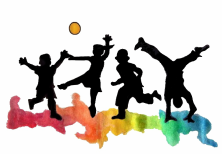
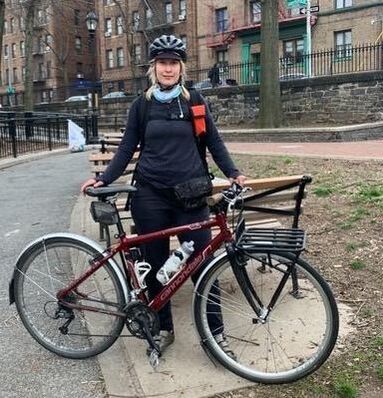
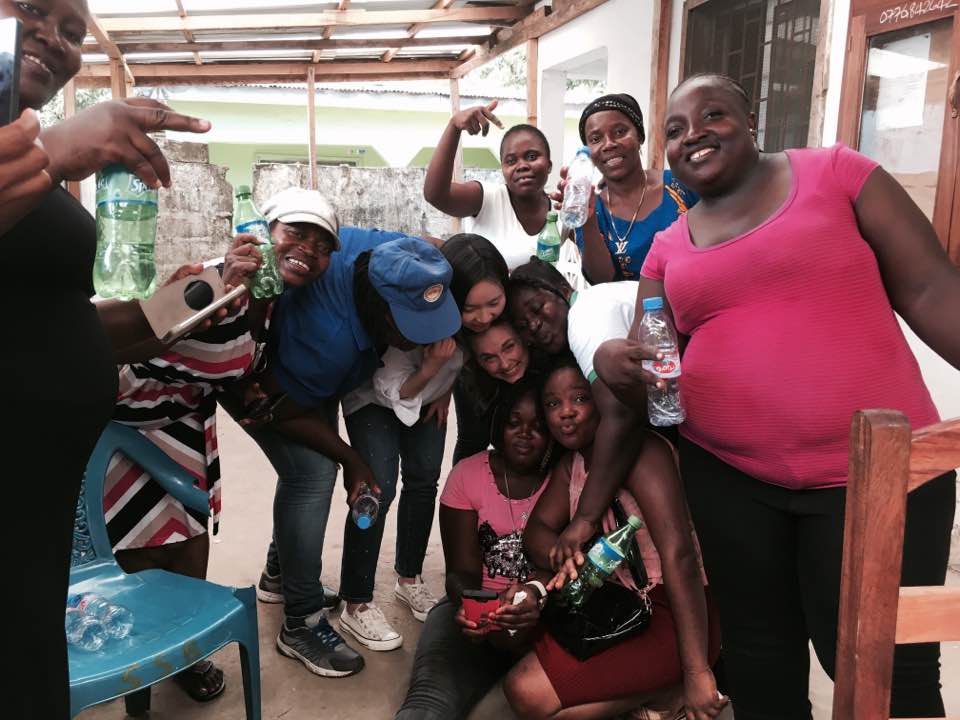
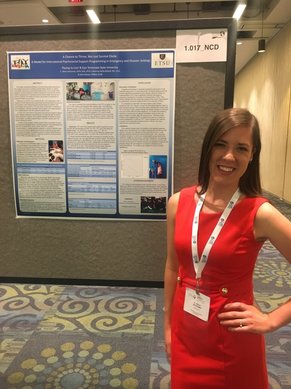
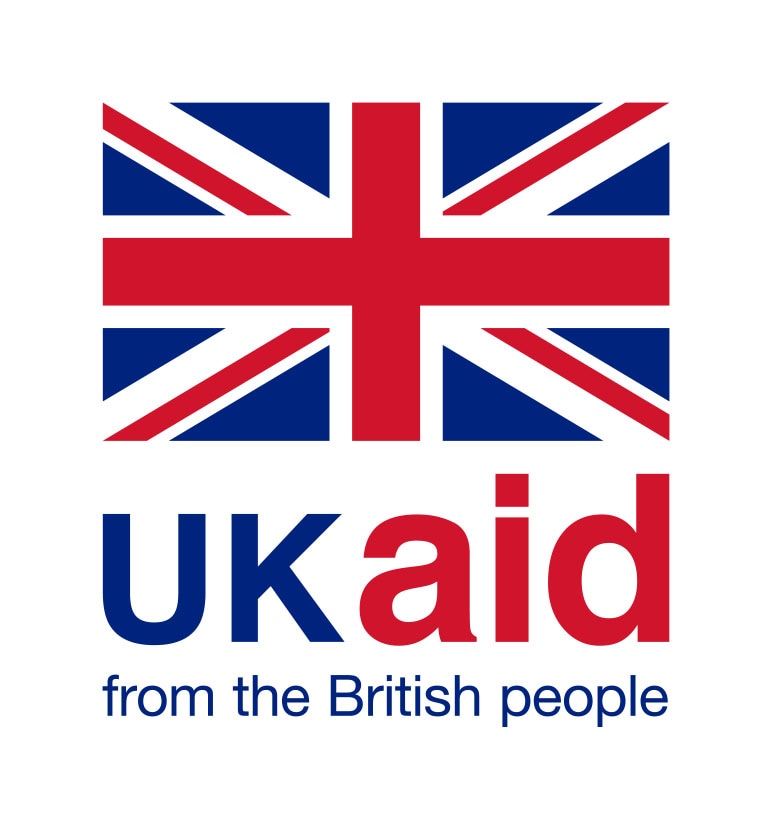

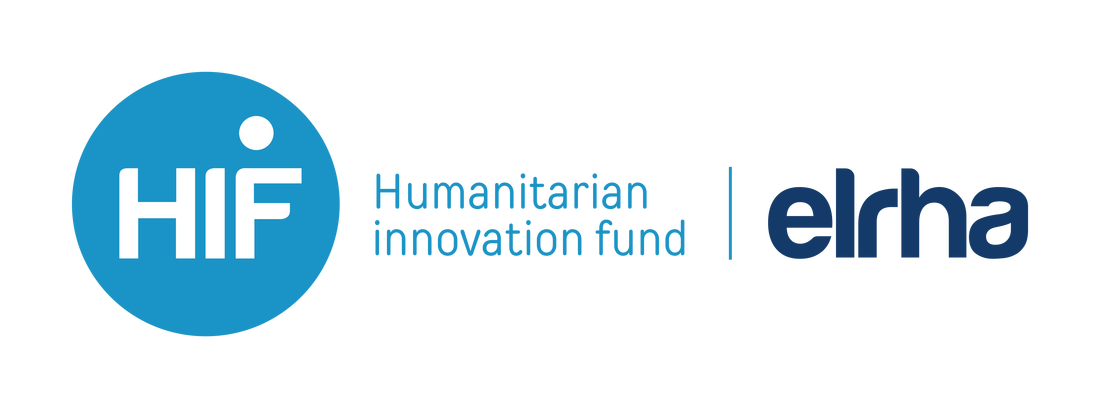
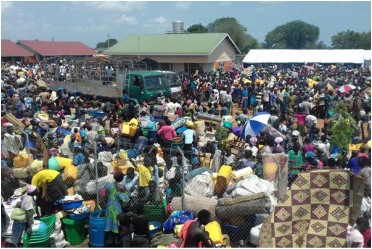
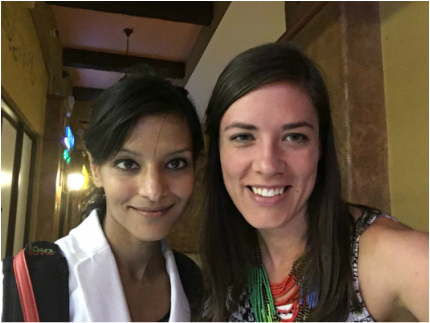
 RSS Feed
RSS Feed